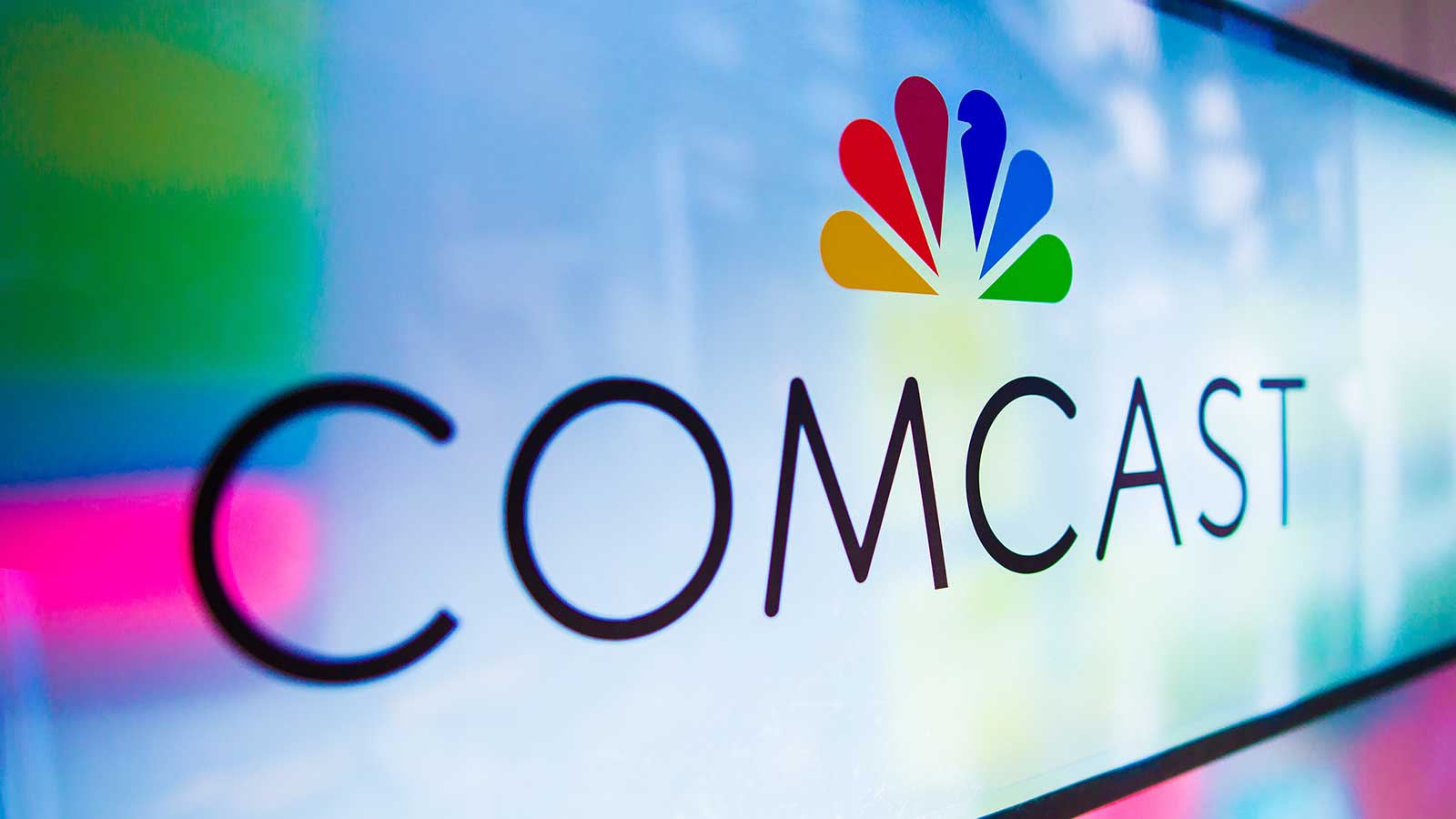Comcast Earnings Fall Amid COVID-19 Pandemic

The smarter way to stay on top of broadcasting and cable industry. Sign up below
You are now subscribed
Your newsletter sign-up was successful
Comcast reported a 40% drop in first-quarter earnings as the Coronavirus crisis impacted revenues and costs.
The company said its cable unit will be hurt in the second quarter as economic conditions deteriorate and by the costs associated with supporting customer connectivity as more people work and learn from home. NBCUniversal and Sky will also be hurt to a greater extent in the second quarter and have “a material adverse impact on our consolidated results of operations over the near-to-medium term,” the company said.
First quarter net income fell 39.6% to $2.147 billion, or 46 cents a share, from $26.859 billion, or 77 cents, a year ago.
Revenue rose 0.9% to $26.6 billion.
The company lost 388,000 residential video customers, reflecting continued cord cutting.
“Society is being challenged like never before in our lifetime, and I couldn’t be prouder of our company, our employees, and our leadership team across Comcast Cable,” said CEO Brian Roberts.
“NBCUniversal, and Sky. Now more than ever the world needs to stay connected, and we’re extremely pleased that our investments in our network continue to pay off as we are handling significant increases in traffic and meeting our customers’ needs," Roberts said. “While parts of our business have been more impacted by COVID-19 than others, we have continued to innovate. We've also taken decisive action, having moved over 95% of our U.S. call-center employees to work from home and putting in place new procedures that have allowed more than 15,000 construction workers to safely come back to work to build our theme park in Beijing.“
The smarter way to stay on top of broadcasting and cable industry. Sign up below
Roberts said the company’s balance sheet remained strong “This is a moment in time; and when it passes, I am very confident that the decisions we are making now will enable us to emerge from this crisis as a healthy, strong company that is well positioned to continue to grow and succeed."
NBCUniveral’s adjusted first-quarter EBITDA dropped 25.3% to $1.747 billion. Revenues dropped 7% to $7.734 billion.
EBITDA for broadcast television was up 29.6% as revenues rose 8.8 to $2.684 billion. Distribution revenue increased 6.9% as retransmission fees increased. Advertising revenue was flat because of higher prices and local political advertising, offset by lower ad spending because of COVID-19.
NBCU’s Cable Network EBITDA fell 1.2% to $1.248 billion as revenues fell 0.3% to $2.859 billion. Distribution revenue was down 1.5%, reflecting a drop in subscribers. Ad revenue was down 2.2% reflecting lower ratings and reduced ad spending resulting from the postponement of sports events because of COVID-19, the company said.
Filmed entertainment EBITDA was down 70.9% and theme park earnings plunged by 84.7%.
Comcast said its cable unit’s adjusted EBITDA was up 6.1% to $6.076 billion. Revenues rose 4.5% to $14.9 billion. Revenues from high speed internet jumped 9.3% to $5.001 billion. Revenues from video were up 0.1% to $5.632 billion. Ad revenues rose 0.3% to $557 million.
Total customer relationships increased to 31.9 million. Residential high-speed internet customers increased by 466,000 to 26.88 million. The company lost 388,000 residential video customers, reducing its total to 19.9 million.
"Comcast’s 1Q results showed very strong broadband subscriber growth, slightly better cable financials, in line cable financials," said analyst Vijay Jayant of Evercore ISI.
"Consolidated EBITDA came in ahead of forecast due to lower corporate losses (due to lower Peacock spending) and higher Sky EBITDA (due to delayed sports costs recognition. Free cash came in better than expected on lower non-cable capex," he said. "Overall, while the full impact of COVID won’t be felt until 2Q, the results show the underlying strength and resiliency of the company’s cable business."
Jon has been business editor of Broadcasting+Cable since 2010. He focuses on revenue-generating activities, including advertising and distribution, as well as executive intrigue and merger and acquisition activity. Just about any story is fair game, if a dollar sign can make its way into the article. Before B+C, Jon covered the industry for TVWeek, Cable World, Electronic Media, Advertising Age and The New York Post. A native New Yorker, Jon is hiding in plain sight in the suburbs of Chicago.

